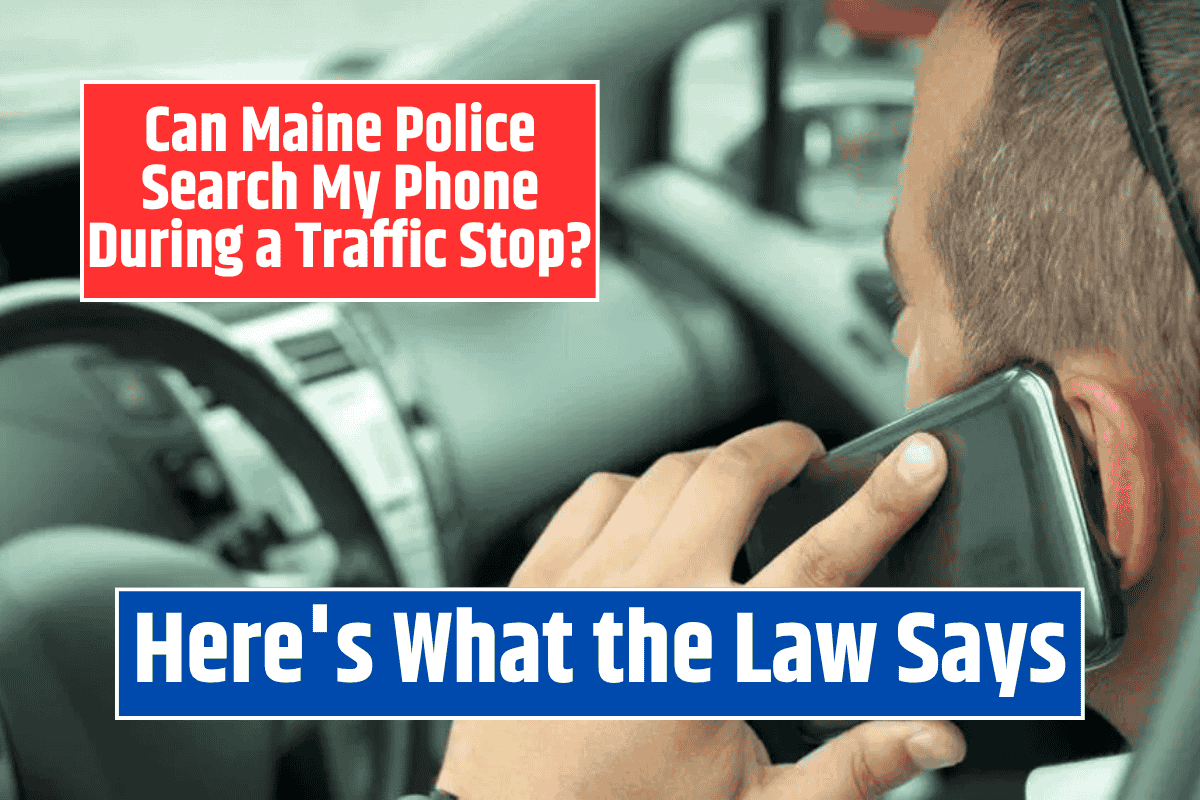Getting pulled over by the police can be stressful, especially if they ask to look through your phone. In Maine, the law protects your privacy, even during a traffic stop.
Many people aren’t sure what their rights are, so this article explains everything you need to know about phone searches by police in Maine.
If you’re wondering whether police can go through your phone without a warrant or your permission, read on to understand your rights.
Do Police in Maine Need a Warrant to Search Your Phone?
Yes, in most cases, Maine police must have a search warrant to look through your phone. This includes checking your messages, call history, photos, emails, or location data.
A search warrant is a legal document signed by a judge. It tells police exactly what they are allowed to search and what they are looking for. These warrants usually last only 10 to 14 days, and they may be extended in special cases.
So, unless officers have this warrant or fall under specific exceptions, they cannot legally search your phone.
When Can Police Search Your Phone Without a Warrant?
There are only a few rare situations when police can search your phone during a traffic stop without a warrant:
1. You Give Permission
If you say “yes” when asked, the officer can search your phone. But remember, you are not required to give consent, and you can politely say no.
2. Emergency Situations
Police may act without a warrant if there’s a real and immediate threat to someone’s life or safety—for example, if they believe someone is in danger and need quick access to location data.
3. Plain View Exception
In very rare cases, if police see something illegal directly visible on your screen—without touching your phone—they might claim it’s in “plain view.” However, this doesn’t apply to most phone content like apps or files.
What Are the Limits of a Search Warrant?
Even if the police have a warrant, they can’t go through your entire phone without limits. The warrant must:
List specific files or types of data they are allowed to search.
Describe which parts of your phone they can access (e.g., only messages, or only photos).
Be used within a short time frame, often up to 10 or 14 days.
A warrant that’s too broad or unclear could be challenged in court for violating your privacy rights.
What Should You Do If Police Ask to Search Your Phone?
If an officer asks to look at your phone during a traffic stop in Maine, here’s what you can do:
Stay calm and respectful.
Politely ask, “Do you have a warrant?”
Clearly say, “I do not consent to a search of my phone.”
You don’t need to unlock your phone or hand over your password unless ordered by a court.
Remember, refusing to give consent does not mean you’re guilty—it just means you know your rights.
In Maine, police cannot search your phone during a traffic stop without a valid search warrant, unless you give clear consent or there’s an emergency. The law protects your digital privacy, and courts take this seriously.
If you’re ever unsure, it’s okay to ask questions and calmly refuse a search unless a judge has approved it. Knowing your rights can help you stay safe and in control during any police interaction.
[1] https://www.notguiltyattorneys.com/how-do-police-get-search-warrants/
[2] https://www.mainelegislature.org/legis/bills/bills_126th/chapters/PUBLIC409.asp
[3] https://legislature.maine.gov/doc/10256












